
Attending the best affordable applied horticulture degree programs can turn your gardening hobby into a blossoming career. Low-cost applied horticulture degree options are growing to study the cultivation of diverse plants. Applied horticulture majors are taught how to identify and care for the more than 391,000 known plant species. Further, horticulture students are busy researching the nearly 2,000 new plants discovered each year. Today’s $13.8 billion horticulture industry needs people with green thumbs to propagate new flora. The Census of Agriculture reports that flower and crop sales have skyrocketed 18 percent since 2009. There are now 23,221 horticulture operations across the U.S. that keep nurseries stocked. California, Florida, Oregon, Michigan, and Texas are the top horticulture states with over $500 million in profits each. Is getting your hands dirty and joining the field’s 172,000 horticulturists your goal? Then, let’s explore 25 affordable colleges for horticulture degree opportunities that are fruitful.
Our Methodology
Affordable Schools sought out top-value applied horticulture degree majors focused on plant production. We started by digging into the NCES College Navigator database. We used the advanced search tool to unearth Bachelor’s in Applied Horticulture Operations and Business. Our results harvested an initial group of 40 four-year institutions. We trimmed the list by looking at average in-state attendance costs. Our team recorded how much in-state residents pay full-time each year. Please note we included out-of-state expenses only for your reference. We preferred tuition under $7,500 to nip student loan debt in the bud. Our researchers gave each cheap applied horticulture degree one to five points based on price.
Points:
Under $7,500: 5 Points
$7,500 to $15,000: 3 Points
$15,001 and Up: 1 Point
Then, the AS Staff weeded out affordable colleges for applied horticulture degree programs with huge class sizes. Large lectures can leave students feeling lost like a corn maze. Professors with big rosters aren’t able to give personalized support or even learn everyone’s names. We want horticulture majors to stand tall and shine bright rather than fade into the crowd. That’s why we looked for student-faculty ratios in the National Center for Education Statistics. Student-faculty ratios tell how many undergrads there are per one teacher. Numbers from 10:1 to 20:1 or lower are most desirable for smaller courses. We planted a three-point rubric this time to judge engagement levels. We graded each high-value applied horticulture degree options by the average student-faculty ratio in 2018-19.
Points:
10:1 or Less: 3 Points
11:1 to 15:1: 2 Points
Greater Than 15:1: 1 Point
Ultimately, Affordable Schools wanted to make sure your horticulture dreams won’t wilt and die. We specifically hunted for best-value applied horticulture degree programs with good graduation rates. Our team found this important college statistic on their U.S. Department of Education profiles. Graduation rates show the percentage of pupils who persist and earn a diploma on time. The standard bachelor’s completion track takes four to six years (48 to 72 months). Horticulture majors who take longer will add significantly more tuition to their tab. Those who transfer out could lose precious credits they’ve worked hard and paid for. Dropping out is undoubtedly the worst scenario though. Failing to finish a horticulture bachelor’s can severely limit your job opportunities and income potential. Thus, we rewarded cheap colleges with high graduation rates above 50 percent the most. Our staff tallied up the point totals and profiled the 25 best inexpensive applied horticulture degree programs in descending order.
Points:
More than 50 Percent: 3 Points
Between 30 and 50 Percent: 2 Points
Less than 30 Percent: 1 Point
Ranking the 25 Most Affordable Colleges for Applied Horticulture Degree Studies
25. Clemson University
Clemson, SC

Total Points: 5
Program Website
Clemson University begins our 25 best affordable applied horticulture degree programs with a $15,374 in-state value and 16:1 student-faculty ratio. At Barre Hall, the College of Agriculture, Forestry & Life Sciences admits undergrads from 38 states in 12 majors, such as the low-cost Horticulture B.S. or Plant and Environmental Sciences B.S., with $400,000 in financial aid. Overseen by Dr. Keith Belli, these 120-credit, SACS-accredited paths share Clemson courses like Plant Physiology and Sustainable Landscape Design. Tigers could also intern with Magnolia Plantation & Gardens, join Horticulture Club, maintain the 240-acre Musser Fruit Farm, enter the PLANET Competition, and study in Ireland.
Degree Options:
Bachelor of Science in Horticulture
Bachelor of Science in Plant and Environmental Sciences
In-State Tuition: $15,374
Out-of-State Tuition: $37,128
Student-Faculty Ratio: 16:1
Graduation Rate: 83 percent
24. Delaware Valley University
Doylestown, PA

Total Points: 6
Program Website
Delaware Valley University finished 24th among the AS Staff’s affordable colleges for applied horticulture degree studies with a $39,440 universal price and 53 percent graduation rate. At Roth Center, the School of Agriculture & Environmental Sciences offers a high-value Horticulture (B.S.) and Crop Science (B.S.) for hands-on planting experience in over 12,000 square feet of greenhouse space. Headed by Dr. Jackie Ricotta, the 120-credit, MSCHE-accredited plan integrates 16-week Doylestown courses like Advanced Pomology and Entomology. Rams might also intern with Gemmill Farms, join Landscape Nursery Club, add the Horticultural Therapy Certificate, and pledge Sigma Alpha.
Degree Options:
Bachelor of Science in Horticulture
Bachelor of Science in Crop Science
In-State Tuition: $39,440
Out-of-State Tuition: $39,440
Student-Faculty Ratio: 13:1
Graduation Rate: 53 percent
23. Concordia University-Wisconsin
Mequon, WI

Total Points: 6
Program Website
Concordia University-Wisconsin is Affordable Schools’ 23rd best-accredited college for applied horticulture degree majors that cost $29,450 with a 12:1 student-faculty ratio. At Kreft Hall, the School of Arts & Sciences grants a best-value Horticulture B.S. in a 2+2 completion format for Milwaukee Area Technical College transfers with 60 or more credits and 2.0 GPAs. Managed by Dr. Erin Laverick, the 126-credit, HLC-accredited Lutheran program splits for three tracks: Landscape Design, Arboriculture, or Landscape Construction. Falcons can also intern with Monk Botanical Gardens, join Alpha Chi, semester in San Juan, earn the Minority Women in STEM Scholarship, and minor in Bioethics.
Degree Options:
Bachelor of Science in Horticulture
In-State Tuition: $29,450
Out-of-State Tuition: $29,450
Student-Faculty Ratio: 12:1
Graduation Rate: 59 percent
22. Temple University
Ambler, PA

Total Points: 6
Program Website
Temple University landed 22nd among our best affordable Bachelor’s in Applied Horticulture degree offerings with $16,970 in-state tuition and a 73 percent completion rate. At Dixon Hall, the Tyler School of Art & Architecture trains Horticulture B.S. cohorts with an average 3.54 GPA to nurture plant growth in its 187-acre Ambler Arboretum 15 miles from Philadelphia. Organized by Dr. Sasha Eisenman, the low-priced 124-credit, MSCHE-accredited sequence spans eight full-time semesters of 16-week courses like Herbaceous Plants and Landscape Restoration. Owls may also add the Perennial Garden Design Certificate, intern with the USDA, join Pi Alpha Xi, and earn the Anders Merit Award.
Degree Options:
Bachelor of Science in Horticulture
In-State Tuition: $16,970
Out-of-State Tuition: $29,066
Student-Faculty Ratio: 14:1
Graduation Rate: 73 percent
21. SUNY Farmingdale State College
Farmingdale, NY
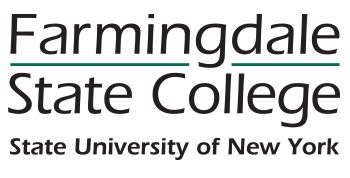
Total Points: 6
Program Website
SUNY Farmingdale State College is our ranking’s 19th most affordable university for applied horticulture degree options with $8,306 in-state pricing and a 20:1 student-faculty ratio. At Thompson Hall, the School of Business awards a cheap B.Tech. in Horticultural Technology Management for two Long Island concentrations: General Horticulture or Landscape Development. Directed by Dr. Jonathan Lehrer, the 123-credit, MSCHE-accredited bachelor’s fills 15-week semesters with courses like Public Garden Management and Soil Science. Rams may also transfer from the A.A.S. in Horticulture, cultivate Robert Ench Garden, intern with Island Harvest, explore Ecuador, and join Horticulture Club.
Degree Options:
Bachelor of Technology in Horticultural Technology Management
In-State Tuition: $8,306
Out-of-State Tuition: $18,086
Student-Faculty Ratio: 20:1
Graduation Rate: 50 percent
20. Utah State University
Orem, UT

Total Points: 6
Program Website
Utah State University claimed 21st place among our affordable colleges for applied horticulture degree programs with an $8,138 in-state cost and 50 percent completion rate. At Stan L. Albrecht Hall, the College of Agriculture & Applied Sciences delivers a best-value B.S. in Horticulture and B.S. in Plant Science to study crop production techniques on the Wasatch Front. Administered by Dr. Ken White, the 120-credit, NWCCU-accredited tracks require minimum 2.75 GPAs during 15-week courses like Pest Management and Plant Breeding. Aggies could also conduct Utah Botanical Center research, intern with Wesco International, run the Student Organic Farm, join the Soils Team, and visit Jamaica.
Degree Options:
Bachelor of Science in Horticulture
Bachelor of Science in Plant Science
In-State Tuition: $8,138
Out-of-State Tuition: $22,316
Student-Faculty Ratio: 20:1
Graduation Rate: 50 percent
19. University of Central Missouri
Warrensburg, MO
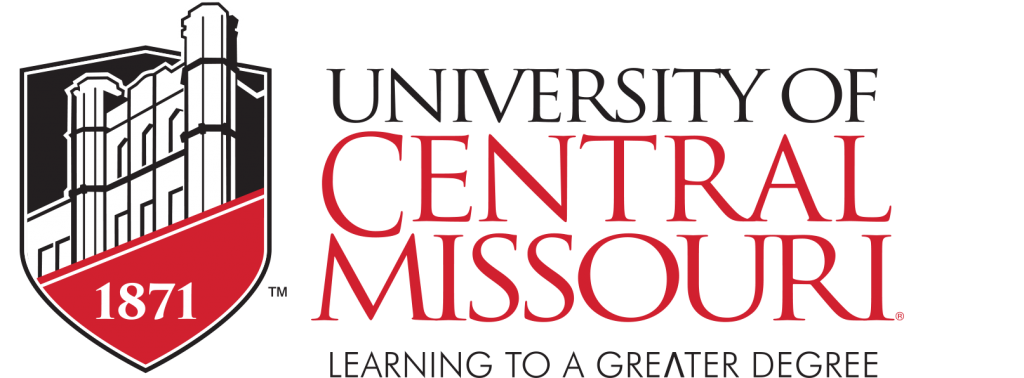
Total Points: 6
Program Website
The University of Central Missouri was picked 19th among affordable colleges for applied horticulture degree majors with $7,673 in-state tuition and a 17:1 student-faculty ratio. At Mitchell Street Farm, the School of Natural Sciences offers an inexpensive Agricultural Science B.S. in four emphases, including Horticulture, to teach crop management skills for 94 percent job placement. Architected by Dr. Mark Goodwin, the 120-credit, HLC-accredited track tailors 16-week Warrensburg courses like Plant Diseases and Turfgrass Science. Mules might also intern with Springfield Botanical Gardens, manage the Bernheim Arboretum, join Horticulture Club, venture to Japan, and attend the MEEA Conference.
Degree Options:
Bachelor of Science in Agricultural Science: Horticulture Emphasis
In-State Tuition: $7,673
Out-of-State Tuition: $14,442
Student-Faculty Ratio: 17:1
Graduation Rate: 49 percent
18. Andrews University
Berrien Springs, MI
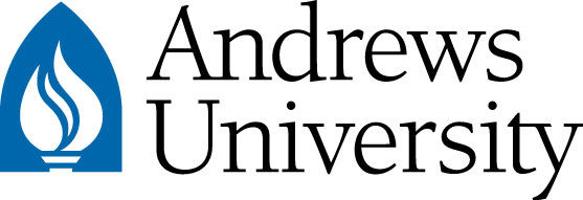
Total Points: 7
Program Website
Andrews University is Affordable Schools’ 18th best- accredited university for applied horticulture degree studies with a $29,288 annual total and 58 percent graduation rate. At Smith Hall, the Department of Agriculture provides a high-value Sustainable Horticulture B.S. with three concentrations: Agribusiness, International Agriculture Development, or Landscape & Environmental Design. Outlined by Dr. Katherine Koudele, the 124-credit, HLC-accredited plan upholds Seventh-day Adventist values in 15-week Michigan courses like Land Surveying and Weed Control. Cardinals can also run the Community Gardens, intern with Mastronardi Produce, attend SciFEST, and join the Collegiate FFA.
Degree Options:
Bachelor of Science in Sustainable Horticulture
In-State Tuition: $29,288
Out-of-State Tuition: $29,288
Student-Faculty Ratio: 10:1
Graduation Rate: 58 percent
17. University of Minnesota
St. Paul, MN

Total Points: 7
Program Website
The University of Minnesota boasts the AS Staff’s 17th best affordable applied horticulture degree programs with a $14,760 in-state price and 80 percent graduation rate. Founded in 1888, the Department of Horticultural Science at Alderman Hall delivers a low-priced B.S. in Plant Science for eight tracks, including Horticultural Production, Plant Breeding, and Nursery Floriculture. Led by Dr. Tom Michaels, the B.S. in Food Systems builds a similar 120-credit, HLC-accredited path with concentrations like Organic Food Production and Agroecology. Gophers may also become Markhart Scholars, intern with Daley Farms, earn the Johnson Research Fellowship, travel to Peru, and join Horticulture Club.
Degree Options:
Bachelor of Science in Plant Science
Bachelor of Science in Food Systems
In-State Tuition: $14,760
Out-of-State Tuition: $30,438
Student-Faculty Ratio: 17:1
Graduation Rate: 80 percent
16. Southern Illinois University
Carbondale, IL
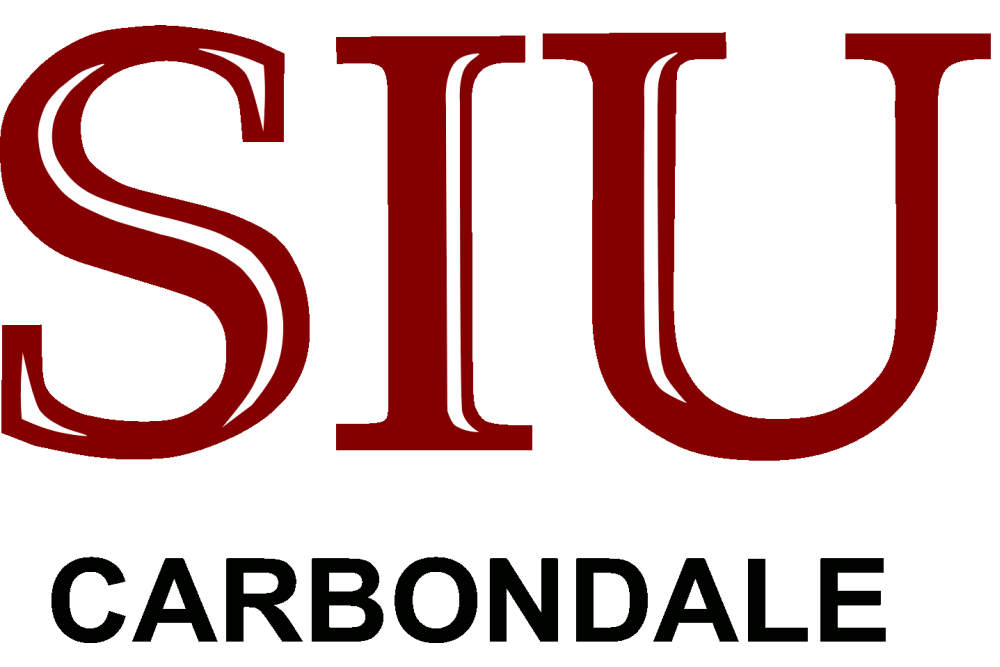
Total Points: 7
Program Website
Southern Illinois University-Carbondale snagged the 16th spot in affordable colleges for applied horticulture degree studies with $14,704 in-state costs and a 13:1 student-faculty ratio. At the 2,000-acre University Farm, the College of Agricultural Sciences confers an inexpensive B.S. in Horticulture with three specializations: Production Horticulture, Landscape Horticulture, or Turfgrass Management. Coordinated by Dr. William Banz, the 120-credit, HLC-accredited curriculum has 16-week courses from Floral Arrangements to Successful Fruit Growing. Salukis could also become Agbassadors, join the Horticultural Association, run the Illinois Soybean Center, tour Oslo, and win the Shane Toenjes Scholarship.
Degree Options:
Bachelor of Science in Horticulture
In-State Tuition: $14,704
Out-of-State Tuition: $29,160
Student-Faculty Ratio: 13:1
Graduation Rate: 41 percent
15. Michigan State University
East Lansing, M
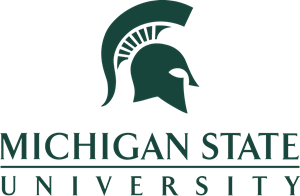
Total Points: 7
Program Website
Michigan State University reached our top 15 affordable colleges for applied horticulture degree programs with a $14,460 in-state rate and 80 percent on-time completion rate. At Justin S. Morrill Hall, the College of Agriculture & Natural Resources offers an economical B.S. in Crop and Social Sciences or B.S. in Horticulture for three tracks: Horticultural Science, Landscape Design, or Sustainable Organic Horticulture. Chaired by Dr. Vance Baird, the 120-credit, HLC-accredited plans share East Lansing courses like Plant Mineral Nutrition and Crop Improvement. Spartans can also compete on the NCLC Team, cultivate the Judith DeLapa Garden, intern with Wilbur-Ellis, and study in New Zealand.
Degree Options:
Bachelor of Science in Horticulture
Bachelor of Science in Crop and Soil Sciences
In-State Tuition: $14,460
Out-of-State Tuition: $39,766
Student-Faculty Ratio: 16:1
Graduation Rate: 80 percent
14. University of California-Davis
Davis, CA
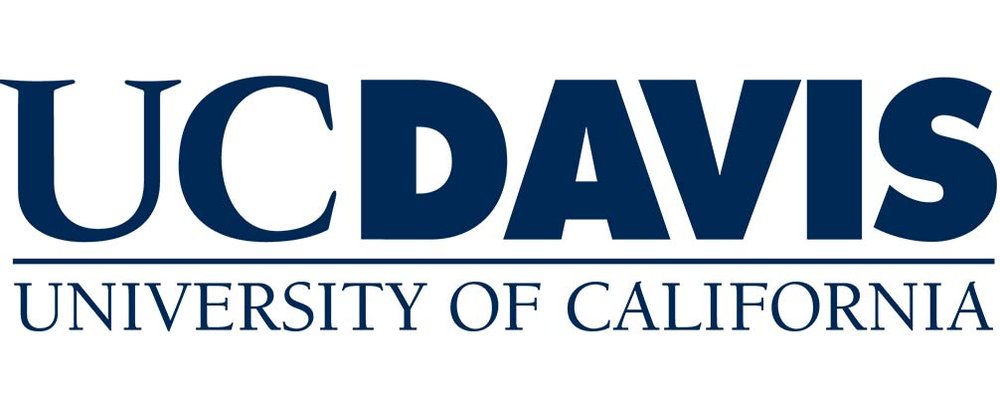
Total Points: 7
Program Website
The University of California-Davis is our list’s 14th most affordable college for applied horticulture degree majors with a $14,402 in-state value and 20:1 student-faculty ratio. Since 1908, the College of Agriculture has grown to 2,300 acres for teaching 7,485 undergrads in 29 majors, including the best-value Plant Sciences B.S. and Environmental Horticulture & Urban Forestry B.S. Overseen by Dr. Gail Taylor, the first 138-unit, WASC-accredited bachelor’s splits into three options: Plant Breeding, Crop Production, or Postharvest Biology and Technology. Aggies may also join the Crop Science Society, pick the Wolfskill Experimental Orchards, intern with Pacifica Garden, and serve in Cambodia.
Degree Options:
Bachelor of Science in Plant Sciences
Bachelor of Science in Environmental Horticulture and Urban Forestry
In-State Tuition: $14,402
Out-of-State Tuition: $43,394
Student-Faculty Ratio: 20:1
Graduation Rate: 86 percent
13. University of Kentucky
Lexington, KY

Total Points: 6
Program Website
The University of Kentucky is crowned our 13th best affordable university for applied horticulture degree offerings with $12,245 in-state expenses and a 66 percent graduation rate. Funded for $50.1 million, the College of Agriculture has 14 academic units serving 2,713 undergrads in 21 majors, including the economical B.S. in Horticulture, Plant & Social Sciences, at the 2,400-acre North Farm. Administered by Dr. Mark Williams, this 120-credit, SACS-accredited path has three emphases: Crops & Livestock, Horticultural Enterprise Management, or Turfgrass Science. Wildcats can also join the MANRRS Chapter, intern with the Kentucky Children’s Garden, and celebrate Ag Awareness Day.
Degree Options:
Bachelor of Science in Horticulture, Plant and Soil Sciences
In-State Tuition: $12,245
Out-of-State Tuition: $29,099
Student-Faculty Ratio: 16:1
Graduation Rate: 66 percent
12. Texas A&M University-College Station
College Station, TX
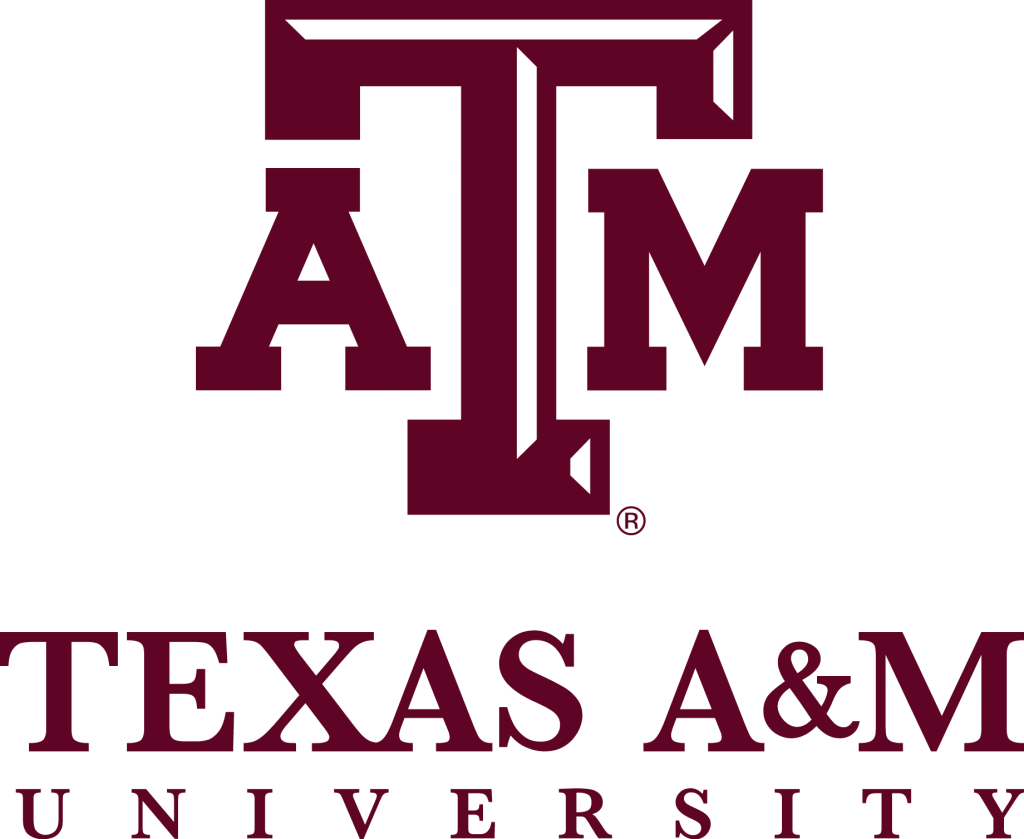
Total Points: 7
Program Website
Texas A&M University-College Station is the AS Staff’s 12th best affordable accredited college for applied horticulture degree studies with $11,870 in-state tuition and 82 percent graduation. Opened in 1879, the College of Agriculture & Life Sciences delivers a high-value B.A./B.S. in Horticulture with hands-on practice at Hensel Park Greenhouse. Advised by Dr. Michael Arnold, the 120-credit, SACS-accredited tracks share 300-level major courses like Vegetable Crop Production and Principles of Food Processing. Aggies might also add the Benz Floral Design Certificate, intern at the Smithsonian Gardens, join Pi Alpha Xi, and semester in Guatemala.
Degree Options:
Bachelor of Arts in Horticulture
Bachelor of Science in Horticulture
In-State Tuition: $11,870
Out-of-State Tuition: $37,495
Student-Faculty Ratio: 20:1
Graduation Rate: 82 percent
11. Colorado State University
Fort Collins, CO
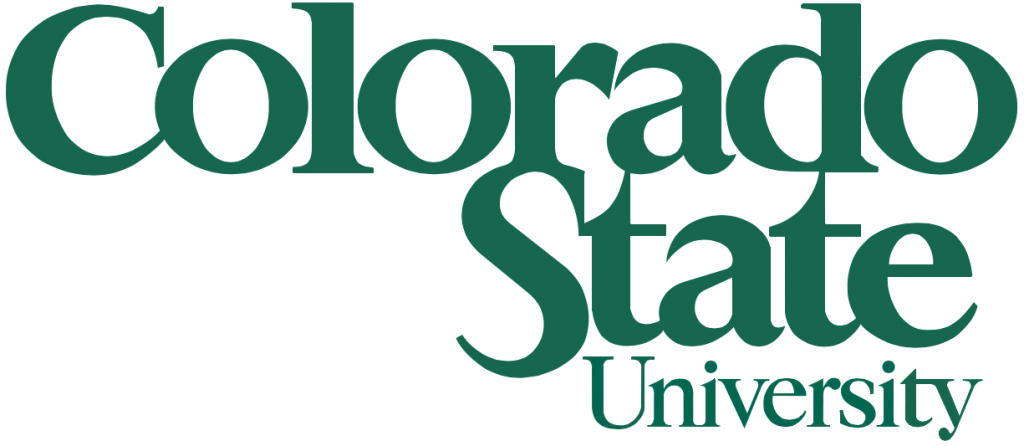
Total Points: 7
Program Website
Colorado State University came in 11th among affordable colleges for applied horticulture degree options with an $11,707 in-state average and 16:1 student-faculty ratio. The College of Agricultural Sciences has a cheap B.S. in Horticulture and B.S. in Environmental Horticulture with nine concentrations, such as Floriculture, Turf Management, or Landscape Business. Headed by Dr. Jessica Davis, the 120-credit, HLC-accredited tracks teach courses like Greenhouse Management and Plant Physiology at Shepardson Hall or online on Canvas. Rams could also attend the Thornton Massa Lecture Series, intern with Crops for Health, run the Flower Trial Garden, and join Hort Club.
Degree Options:
Bachelor of Science in Horticulture
Bachelor of Science in Environmental Horticulture
In-State Tuition: $11,707
Out-of-State Tuition: $29,608
Student-Faculty Ratio: 16:1
Graduation Rate: 71 percent
10. Arizona State University
Mesa, AZ

Total Points: 7
Program Website
Arizona State University kicks off our 10 best affordable applied horticulture degree programs with a $10,822 in-state cost and 69 percent six-year graduation rate. At Santa Catalina Hall, the College of Integrative Sciences & Arts lets Polytechnic Campus undergrads pursue an inexpensive B.S. in Applied Biological Sciences with a Sustainable Horticulture Concentration. Managed by Dr. Duane Roen, the 120-credit, HLC-accredited sequence requires a minimum 3.0 GPA or 1120 SAT score before courses like Urban Forestry and Desert Horticulture. Sun Devils can also intern with Gilcrease Orchard, work on Crooked Sky Farms, join the Cultivate Garden Club, and get the Burton Barr Memorial Scholarship.
Degree Options:
Bachelor of Science in Applied Biological Sciences: Sustainable Horticulture Concentration
In-State Tuition: $10,822
Out-of-State Tuition: $28,336
Student-Faculty Ratio: 19:1
Graduation Rate: 69 percent
9. University of Wisconsin-Madison
Madison, WI

Total Points: 7
Program Website
The University of Wisconsin-Madison received our list’s ninth place for affordable applied horticulture degree majors that charge $10,555 in-state with a 17:1 student-faculty ratio. At Agricultural Hall, the Department of Horticulture accepts $60 applications until February 1st and October 1st to enter the low-cost B.S. in Horticulture or B.S. in Plant Pathology. Guided by Dr. Krysan Jansky, the 120-credit, HLC-accredited options study flora growth with 15-week Madison courses like World Vegetable Crops and Plant Nutrition Management. Badgers can also plant at Eagle Heights Community Gardens, intern with Morris Arboretum, join the Horticulture Society, and attend the Organic Agriculture Colloquium.
Degree Options:
Bachelor of Science in Horticulture
Bachelor of Science in Plant Pathology
In-State Tuition: $10,555
Out-of-State Tuition: $36,805
Student-Faculty Ratio: 17:1
Graduation Rate: 87 percent
8. Kansas State University
Manhattan, KS
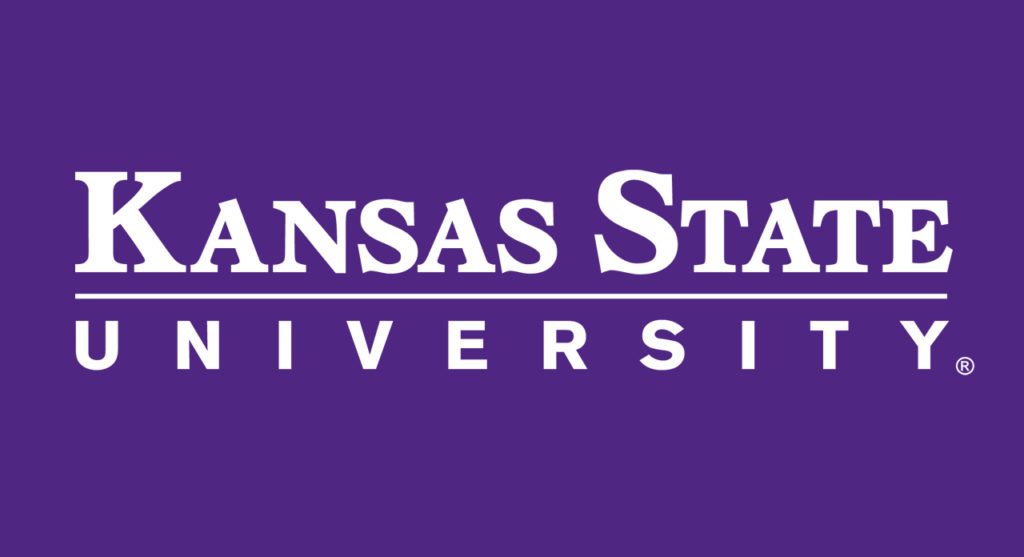
Total Points: 7
Program Website
Kansas State University is Affordable Schools’ eighth best- accredited university for applied horticulture degree paths with a $10,383 in-state price and 64 percent graduation rate. At Throckmorton Hall, the College of Agriculture awards a cheap B.S. in Horticulture for four emphases: Horticulture Production, Plant Science, Landscape Horticulture, or Turf Operations. Directed by Dr. Ernie Minton, the 126-credit, HLC-accredited major offers a Dual B.S. in Global Food Systems Leadership with courses like Human Nutrition and Grain Analysis. Wildcats might also win the Shinoda Scholarship, travel to Belgium, join the GCSAA Chapter, maintain the KSU Greenhouse, and intern with Monsanto.
Degree Options:
Bachelor of Science in Horticulture
Bachelor of Science in Global Food Systems Leadership
In-State Tuition: $10,383
Out-of-State Tuition: $25,887
Student-Faculty Ratio: 18:1
Graduation Rate: 64 percent
7. Kent State University
Salem, OH

Total Points: 7
Program Website
Kent State University was chosen the AS Staff’s seventh most affordable college for applied horticulture degree studies with a $10,312 in-state total and 20:1 student-faculty ratio. At the Salem Campus, the College of Applied & Technical Studies admits transfers with an average 3.4 GPA into the inexpensive Bachelor of Applied Horticulture (B.A.H.) for 2+2 degree completion. Headed by Dr. Chris Carlson, the 120-credit, HLC-accredited curriculum adds 30 hours of weekly co-op experience between courses like Landscape Construction and Irrigation Design. Golden Eagles may also choose the A.A.S. in Horticulture Technology, tend the Draime Estate Gardens, join Hort Club, and tour Florence.
Degree Options:
Bachelor of Applied Horticulture
In-State Tuition: $10,312
Out-of-State Tuition: $19,014
Student-Faculty Ratio: 20:1
Graduation Rate: 60 percent
6. University of Missouri
Columbia, MO
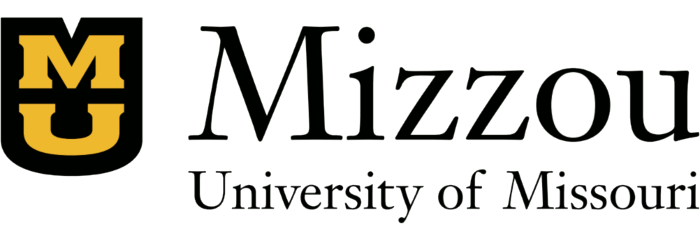
Total Points: 7
Program Website
The University of Missouri stands sixth among affordable colleges for applied horticulture degree options with a $9,972 in-state value and 17:1 student-faculty ratio. At Waters Hall, the College of Agriculture, Food & Natural Resources has 87 percent six-month job placement for low-priced Plant Sciences BS majors in three emphases: Crop Management, Horticulture Science, or Breeding and Biotechnology. Mentored by Dr. Kaitlyn Bissonnette, the 120-credit, HLC-accredited sequence has Columbia courses like Soil Fertility and Landscape AutoCAD. Tigers may also join Turf Club, become Dickinson Scholars, intern with Kent’s Floral Gallery, and care for the Mizzou Botanic Garden.
Degree Options:
Bachelor of Science in Plant Sciences
In-State Tuition: $9,972
Out-of-State Tuition: $27,042
Student-Faculty Ratio: 17:1
Graduation Rate: 69 percent
5. South Dakota State University
Brookings, SD

Total Points: 7
Program Website
South Dakota State University starts the top five affordable colleges for applied horticulture degree programs with in-state tuition of $8,764 and a 56 percent graduation rate. At Berg Hall, the College of Agriculture, Food & Environmental Sciences offers a cheap Horticulture Major (B.S.) for four tracks: Food Crops, Crop Production, Agribusiness, or Plant Science. Coordinated by Dr. Brent Turnipseed, the 120-credit, HLC-accredited curriculum spans eight 17-week semesters with courses like Ornamental Plants and Weed Management. Jackrabbits could also intern with McCrory Gardens, conduct Seed Testing Lab research, join Conservation Club, pledge Pi Alpha Xi, and attend the FFA Banquet.
Degree Options:
Bachelor of Science in Horticulture
In-State Tuition: $8,764
Out-of-State Tuition: $12,128
Student-Faculty Ratio: 17:1
Graduation Rate: 56 percent
4. Virginia Polytechnic Institute and State University
Blacksburg, VA

Total Points: 8
Program Website
Virginia Tech is Affordable Schools’ fourth best low-cost applied horticulture degree provider with a $13,620 in-state rate and 14:1 student-faculty ratio. At Saunders Hall, the School of Plant & Environmental Sciences has 51,000 square feet of growing space to train B.S. in Environmental Horticulture, B.S. in Landscape Horticulture and Design, or B.S. in Crop and Soil Sciences majors. Directed by Dr. Alex Niemiera, the economical, 120-credit, SACS-accredited options cover Blacksburg courses like Plant Pathology and Pesticide Usage. Hokies may also tend the Keck Greenhouse, add the Viticulture Minor, intern with Bartlett Tree Experts, take the 4-H in Senegal trip, and join Horticulture Club.
Degree Options:
Bachelor of Science in Environmental Horticulture
Bachelor of Science in Landscape Horticulture and Design
Bachelor of Science in Crop and Soil Sciences
In-State Tuition: $13,620
Out-of-State Tuition: $31,908
Student-Faculty Ratio: 14:1
Graduation Rate: 84 percent
3. Washington State University
Pullman, WA
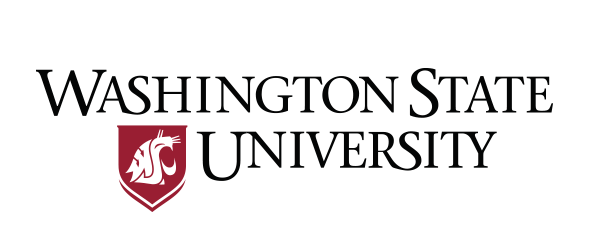
Total Points: 8
Program Website
Washington State University is named the AS Staff’s third most affordable college for applied horticulture degree programs with $11,584 in-state tuition and 59 percent completion. At Johnson Hall, the Department of Horticulture provides a high-value B.S. in Integrated Plant Sciences for seven majors, including Fruit & Vegetable Management and Field Crop Management. Supervised by Dr. Dorrie Main, the 120-credit, NWCCU-accredited bachelor’s fills 15-week semesters with Pullman courses like Olericulture and Interior Plantscaping. Cougars could also practice on the Tukey Horticulture Orchard, intern with Garden To Table, join Viticulture Club, and earn the Brighter Blooms Scholarship.
Degree Options:
Bachelor of Science in Integrated Plant Sciences
In-State Tuition: $11,584
Out-of-State Tuition: $25,820
Student-Faculty Ratio: 15:1
Graduation Rate: 59 percent
2. University of Maine
Orono, ME

Total Points: 8
Program Website
The University of Maine is declared the second best affordable university for applied horticulture degree paths with an $11,170 in-state price tag and 15:1 student-faculty ratio. At Rogers Hall, the School of Food & Agriculture admits freshmen with an average 3.22 GPA into the low-cost Sustainable Agriculture B.S., Environmental Horticulture B.S., and Botany B.S. for learning about plants. Led by Dr. Robert Causey, the 120-credit, NEASC-accredited programs have similar 15-week Orono courses like Landscape Design and Crop Rotation Science. Black Bears might also cultivate the Roger Clapp Greenhouse, intern with Shoals Marine Lab, join the Food Guild, and pursue the M.S. in Horticulture.
Degree Options:
Bachelor of Science in Environmental Horticulture
Bachelor of Science in Sustainable Agriculture
Bachelor of Science in Botany
In-State Tuition: $11,170
Out-of-State Tuition: $30,970
Student-Faculty Ratio: 15:1
Graduation Rate: 60 percent
1. New Mexico State University
Las Cruces, NM
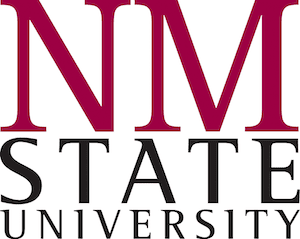
Total Points: 8
Program Website
New Mexico State University won our top spot among affordable colleges for applied horticulture degree programs with cheap $6,686 in-state tuition and a 47 percent graduation rate. At Skeen Hall, the College of Agricultural, Consumer & Environmental Sciences grants an inexpensive B.S. in Agriculture for four majors, including Horticulture and Turfgrass Management. Administered by Dr. Rolando Flores since Fall 2016, both 120-credit, HLC-accredited options require 16-week Las Cruces courses like Plant Disorder Diagnosis and Crop Physiology. Aggies can also research in the Soil Testing Lab, work for ACES in the Hole Foods, pledge Alpha Gamma Rho, and attend the Chile Pepper Conference.
Degree Options:
Bachelor of Science in Agriculture – Horticulture
Bachelor of Science in Agriculture – Turfgrass Management
In-State Tuition: $6,686
Out-of-State Tuition: $21,770
Student-Faculty Ratio: 17:1
Graduation Rate: 47 percent
What Do Various Cheap Applied Horticulture Degree Concentrations Mean?
Picking your best affordable accredited college for applied horticulture degree majors requires knowing which field disciplines most interest you. Horticulture majors often bolster their B.A/B.S. by choosing concentrations in these areas. For example, viticulture focuses on grape growing at vineyards to produce wine. Turfgrass management is concerned with laying real or artificial sod for recreational use. Floriculture is the cultivation of flowering plants, such as tulips, roses, and orchids, for beautiful gardens. Arboriculture centers on woody plants like trees, shrubs, and lianas in our ecosystem. Entomology is a biological science that studies the insects and pests found on plants. Ornamental horticulture is all about creating decorative plant and flower displays for aesthetics. Environmental horticulture promotes the greenest eco-friendly techniques to develop plants and food crops. Olericulture advances our nutrition by focusing on edible vegetable growth. In contrast, pomology is the horticulture branch that studies sweet, seed-bearing fruits. Landscape architecture is also a profession for designing yards, patios, and gardens.
Which Careers are Best for Affordable Applied Horticulture Degree Graduates?
Getting an affordable degree in applied horticulture can sow the seeds for entering advanced graduate programs or several different plant-based careers requiring tillage talent. For instance, plant pathologists stop the spread of diseases by identifying and treating infectious pathogens. Horticultural inspectors visit farms to make sure their fruit and vegetable crops meet quality standards. Landscape designers use flowers, shrubs, and trees to beautifully decorate clients’ outdoor spaces. Plant breeders develop new hybrid species and better crop yields by controlling reproduction. Greenhouse managers oversee the day-to-day operations of commercial plant production companies. Golf course managers use their horticulture expertise to grow and maintain turf for sporting events. Irrigation technicians design sprinkler systems that give plants adequate water to flourish. Other potential jobs include groundskeeper, floral designer, nursery manager, community garden administrator, crop sales specialist, vineyard technician, soil scientist, ornamental horticulturist, farm consultant, arborist, and conservation forester.
What is the Expected Salary with a Cost-Effective Applied Horticulture Degree?
Choosing affordable colleges for applied horticulture degree majors is smart to save money now and increase your ROI in an eco-friendly STEM field that often pays well. In May 2018, the Bureau of Labor Statistics reported that salaries in horticulture science range from $38,570 to $115,400. Soil and plant scientists receive a mean annual wage of $69,170. Botanists have median income of $58,990 each year. Foresters are compensated $61,710 on average. Conservation scientists enjoy mean earnings of $65,320. Plant microbiologists and pathologists can expect around $71,650 annually. Crop farmers and managers have median profits of $67,950. Nursery and greenhouse managers reap $79,940 on average. Landscape designers earn a mean salary of $73,160. Floral designers make considerably less at $28,900. Median pay for groundskeepers is $30,940. First-line grounds maintenance supervisors have an average wage of $50,020. Pest control specialists are given mean compensation of $35,610 per year.
How is the Job Market After Economical Applied Horticulture Degree Programs?
Graduating from an affordable university for applied horticulture degree majors will sprout a long-lasting career in a fertile field that’s ripe with openings. By 2028, the U.S. Department of Labor predicts employment of plant scientists will jump 8 percent for 1,400 new jobs. Agriculture technicians will see average growth of 6 percent. Hiring of foresters will increase by 3 percent. The number of farmers and crop managers will hit 966,500 for a 1 percent uptick. Plant microbiologists and pathologists will benefit from 5 percent more jobs. The 10-year outlook for landscape designers shows a 4 percent boost. Careers in grounds maintenance will expand by 9 percent. Arborists can count on faster-than-average growth of 10 percent. Agricultural engineers will experience a 5 percent uptick this decade. On the other hand, demand for floral designers will plummet by 14 percent for 7,600 fewer jobs. Even in competitive times, having an accredited applied horticulture degree can help you come up smelling like a rose.
AS Staff
This concludes our ranking of the top 25 best affordable applied horticulture degree programs (bachelor’s).
Other Rankings of Interest:
50 Best Affordable Bachelor’s in Agricultural Business Management
25 Best Affordable Turf and Turfgrass Management Degree Programs (Bachelor’s)
20 Best Affordable Online Bachelor’s in Agriculture Science
The 50 Most Affordable Colleges with the Best Return
5 Most Affordable Ph.D in Sports Management Online
25 Cheapest Online Schools for Out-of-State Students (Bachelor’s)
40 Best Affordable Accelerated 4+1 Bachelor’s to Master’s Degree Programs
40 Best Affordable One-Year Accelerated Master’s Degree Programs
The 50 Best Affordable Business Schools
 The Best Colleges
The Best Colleges The Lowest Costs
The Lowest Costs The Highest Returns
The Highest Returns